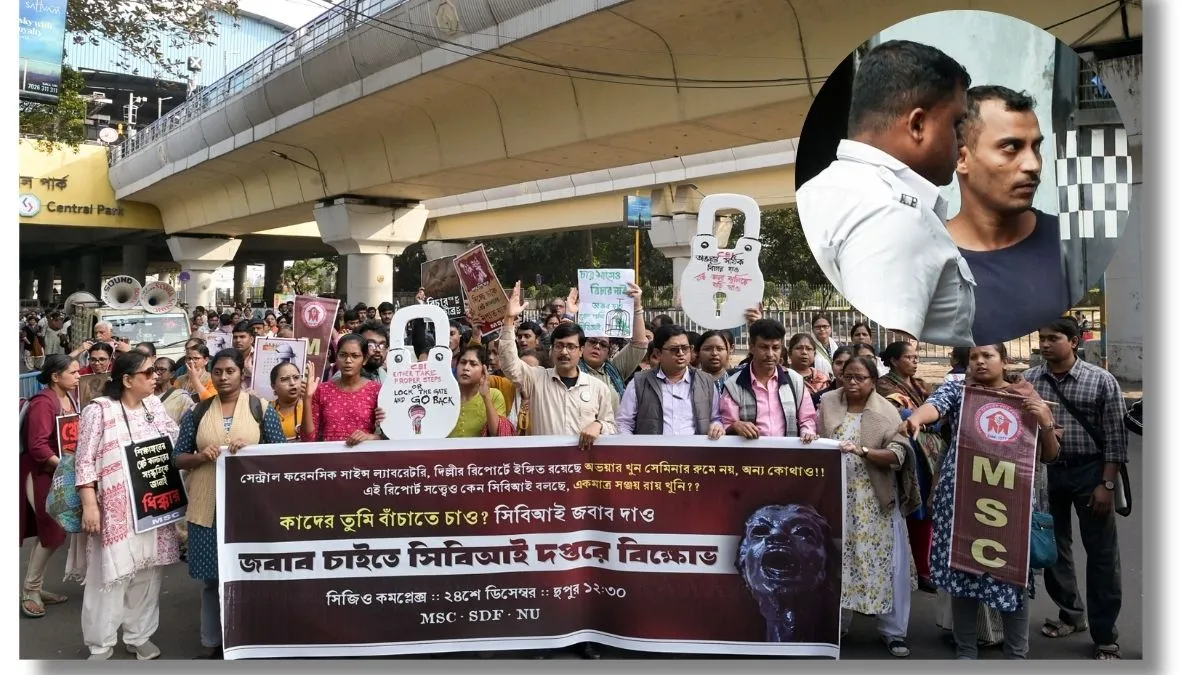In a case that has gripped the nation, the Supreme Court of India is poised to hear a suo moto plea regarding the horrific rape and murder of a young female doctor. This shocking crime, which left the country reeling, has led to intense public outcry and demands for justice. Let's delve into the details of this tragic event and the ongoing legal battle.
The Heinous Crime and its Aftermath
The brutal rape and murder of a trainee doctor at Kolkata's RG Kar Medical College and Hospital sent shockwaves throughout India. The victim, a bright young woman pursuing her dreams, was found dead in the seminar hall of the hospital, her life tragically cut short. This senseless act of violence against a woman who dedicated her life to healing others ignited widespread anger and prompted immediate calls for justice. The arrest of Sanjay Roy, a civic volunteer, initially brought some measure of relief, yet the fight for true justice has been far from easy.
The Conviction and Public Outrage
While Sanjay Roy was found guilty and sentenced to life imprisonment, this verdict has only fueled further protests and calls for the death penalty. Many believe that the crime was so heinous, so devoid of humanity, that only the death penalty would suffice. The sheer brutality of the act has resonated deeply across the nation, sparking passionate discussions about the justice system's response to such violent crimes.
The Parents' Plea and Further Investigation
Adding another layer to this already complex legal battle, the victim's parents have filed an intervention petition, expressing concerns about potential flaws in the original investigation. They seek further inquiries into the case, a demand underscored by their desperate plea for complete and transparent justice for their beloved daughter. Their anguish underscores the wider need for meticulous and thorough investigations into such crimes, to ensure all aspects are explored and addressed, leaving no stone unturned.
The Legal Battle Intensifies
The case has moved beyond the local court and escalated to the highest levels of the Indian judicial system. The West Bengal government appealed the life sentence verdict to the Calcutta High Court, demanding the death penalty for the accused. This appeal directly challenges the lower court's ruling, arguing that the case fits the criteria of a "rarest of rare" case deserving of capital punishment. Chief Minister Mamata Banerjee voiced her strong support for this appeal, emphasizing the seriousness of the crime.
The Supreme Court's Role
Now, the Supreme Court will weigh in, a development with significant implications for justice in this case. This will not simply determine the fate of the accused, but also set a potential precedent for handling similar cases in the future. Public attention remains firmly fixated on the ongoing proceedings, eagerly awaiting a verdict that may shape legal approaches to crimes of similar gravity. The outcome will undoubtedly impact how future such cases are viewed, investigated, and judged.
Implications and Future Considerations
This case underscores the pressing need for stringent laws and robust enforcement mechanisms to address the escalating issue of violence against women in India. It emphasizes that a simple life imprisonment might not always bring about the closure, peace, or sense of justice sought by victims' families, and by society as a whole. A comprehensive examination of the justice system's response to such crimes is essential to avoid the perpetuation of injustices and improve the legal protections afforded to vulnerable populations.
The Ongoing Conversation about Justice
The public outrage spurred by this case ignites a crucial conversation about the need for legal changes and measures that strengthen protections for women and hold perpetrators fully accountable. This includes a commitment to transparent and effective investigations and trials, where both due process and victim’s rights are carefully balanced.
Protecting Healthcare Workers
Beyond the specific aspects of this case, it raises a concerning point about the safety and security of healthcare workers, specifically within hospital environments. Hospitals ought to be spaces of care and healing, but tragically, the case demonstrates this is not always so. The incident also compels a thorough review of safety and security measures implemented within medical institutions, to prevent recurrence of such terrible crimes.
Take Away Points
- The horrific rape and murder of a trainee doctor in Kolkata has sparked widespread outrage and demands for justice.
- Sanjay Roy has been convicted and sentenced to life imprisonment, but the West Bengal government is appealing for the death penalty.
- The Supreme Court will hear a suo moto plea in the case, and a further investigation into potential flaws in the initial investigation has also been sought by the victim's parents.
- This case highlights systemic issues of violence against women in India and underscores the critical need for stronger laws and safety measures to ensure protection of healthcare professionals within their workplaces.
- The ongoing legal battle is expected to generate important discussions on how to provide effective and impactful justice in cases of extreme brutality and ensure the safety of vulnerable communities.









